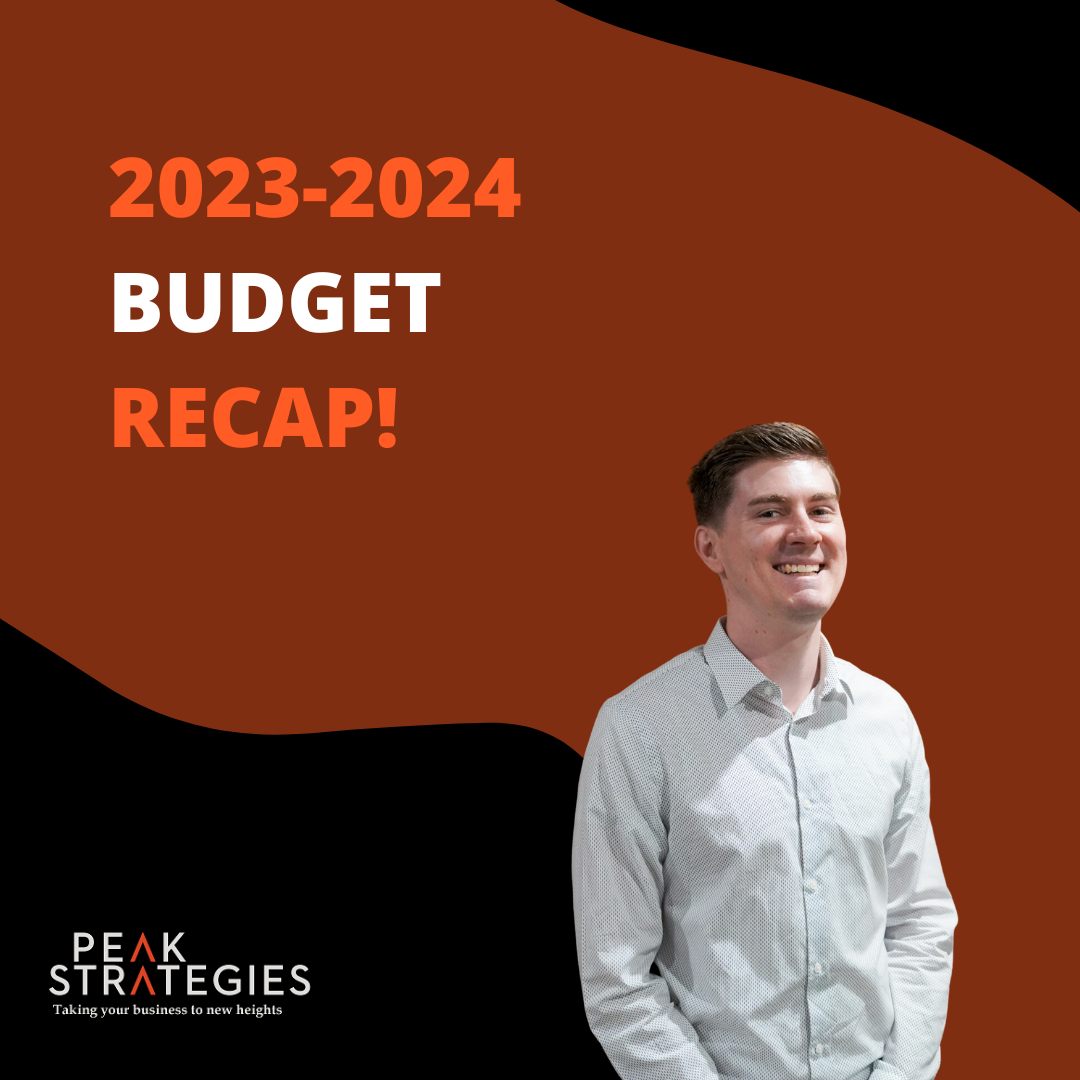Labour Treasurer, Jim Chalmers’ has released the 2023-2024 budget, with a focus to relieve cost of living pressures, provide greater access to healthcare and more emphasis on compliance with the ATO. For community pharmacy though, the budget came with much worry and concern for the future of the industry, their patients, their businesses, and their teams.
Below are a few key points that are relevant to you and your pharmacy:
Community Pharmacy
‘60 Day Dispensing’ will begin to be phased in from 1 September 2023. This is not unexpected and will negatively affect many pharmacies, totalling $3.5billion for community pharmacy, by cutting the number of visits patients need to frequent the pharmacy for medications. Patient will save up to $180 per year, per medicine if prescribed for 60 days, and concession card holders up to $43.80 a year, per medicine, however, taking $3.5billion out of community pharmacy.
According to the Department of Health, ‘every dollar saved by the Government from this reform will be reinvested back into community pharmacy to provide clinical services that Australians need’, however the Pharmacy Guild says otherwise. Guild President Trent Twomey said, ‘We welcome moves by the Government to reform the health system but at the same time they are asking 6,000 pharmacies to support more patients while cutting 50 per cent of their funding, it doesn’t add up. ‘If the Federal Government wants to actually reinvest the money taken out, they will need to fund at least $3.5 billion back into community pharmacies over the next four years’.
Despite this, some measures announced include:
· Eligible regional and remote pharmacies will receive double the Regional Pharmacy Maintenance Allowance. For example, inner regional pharmacies would receive $6,000 a year, instead of $3,000.
· $654.9 million to be invested over 4 years from 2023–24 (and $168.4 million ongoing) for community pharmacy programs under the Seventh Community Pharmacy Agreement (7CPA).
· $377.3 million over 4 years from 2023–24 (and $98.4 million ongoing) to make patient access more affordable under the PBS Opioid Dependence Treatment program.
· $111.8 million over 4 years from 2023–24 (and $24.2 million ongoing) to provide electronic-prescription delivery infrastructure and services, including mandating the use of e-prescribing for high risk and high-cost medicines subsidised under the PBS.
· $114.1 million over 5 years from 2022-23 (and $31.0 million ongoing) to deliver vaccines to eligible patients under the National Immunisation Program.
· $10.1 million over 4 years from 2023–24 for the Therapeutic Goods Administration to assist medicine sponsors repurpose targeted medicines by expanding approval for their use in Australia.
· $73.5 million over 4 years from 2023–24 (and $3.6 million ongoing) by revising the estimated uptake and changing the medication management arrangements for residential aged care homes previously announced in the 2022-23 March Budget. Improved medication safety and quality use of medicines for residential aged care residents will be led by community pharmacy.
Considering the anticipated reduction in profit from 60-day dispensing, these support measures may not go very far, and currently lack a lot of detail to give the industry any comfort.
Medicare & Other Health Investments
A few other measures outlined in the budget include:
· $2.2 billion over 5 years for new and amended listings to the PBS, including treatment for cystic fibrosis.
· The bulk billing incentive will be tripled for many common consultations with children under 16 years of age, pensioners and other concession card holders. This includes face‑to‑face, telehealth and videoconference consultations.
· $47.8 million for wound care. Patients with diabetes and chronic wounds will benefit from this additional funding to improve access to more affordable, high-quality wound care.
· Investing $824.4 million towards the MyMedicare system to strengthen the relationship between doctors and their patients and produce better continuity of care. In time, MyMedicare will also be extended to nurse practitioners and other primary care providers. This will provide health professionals the digital and data tools needed to provide improved and more co‑ordinated care.
· New funding packages for general practices to provide comprehensive care to patients who are frequent hospital users ($98.9m); and for Australians in residential aged care ($112.0m).
Superannuation Crackdown
Employer superannuation will need to be paid at the same time as wages. This is proposed to commence on 1 July 2026. Previously, super was required to be paid each quarter. The Treasurer said, that by switching to payday super, a 25-year-old median income earner currently receiving their super quarterly and wages fortnightly could be around $6,000 or 1.5% better off at retirement. This is on the basis that more frequent payments would lead to higher earnings on investments, since the contribution is available to be invested each payday, compared to each quarter.
This change however will bring additional compliance costs for super processing and ATO STP reporting. There is a higher non-compliance risk and if super is not paid on time, interest plus an administration fee is imposed.
Pharmacy owners need to consider this change in the future, which may mean processing wages fortnightly, instead of weekly.
Instant Asset Write Off
The current temporary full expensing incentives are set to expire on 30 June 2023. The Government has announced a temporary increase of the Instant Asset Write-off threshold for another year, from $1,000 to $20,000.
Small businesses with an aggregated annual turnover of less than $10 million will be able to immediately deduct the full cost of eligible assets costing less than $20,000 that are first used or installed ready for use between 1 July 2023 and 30 June 2024.
It is important to note that if dispensing robots, fit-outs and other plant & equipment are not installed and ready for use by 30 June 2023, they cannot be deducted in full. Instead, the tax deduction can be claimed over a number of years, depending on the asset.
Personal Tax Compliance
The scope of the Personal Income Tax Compliance Program will be extended and expanded from 1 July 2023. The ATO will have greater preventative, corrective and proactive activities in key areas of non-compliance, and to broaden the program’s scope to address developing risk areas, such as deductions relating to short-term rental properties.
During the five years from 2022-23, the extension is estimated to increase payments by $90.8 million and increase receipts by $474.9 million.
Tax Instalments
Many businesses and individuals are required to pay quarterly PAYG instalments. The Government will amend the tax law to set the GDP adjustment factor for these at 6% for the 2023–24 income year (once legislated), a reduction from 12%. This will provide short-term cash flow support to small businesses and other PAYG instalment taxpayers.
Small Business Energy Incentive
Small businesses will be able to access an additional 20% tax deduction for eligible assets or upgrades that ‘supports electrification and more efficient use of energy’, installed and ready for use between 1 July 2023 and 30 June 2024. $100,000 of total expenditure will be eligible, with the maximum bonus deduction being $20,000. This measure is not yet law and the details are yet to be finalised.
Build-To-Rent Projects
For eligible new BTR projects where construction starts after 9 May 2023, property investors can receive a capital works deduction of 4% per year. Currently, the capital allowance rules for buildings and other capital works allow for a depreciation rate of 2.5% (or a 40-year effective life) for residential buildings constructed after 26 February 1992 and used for the purpose of producing assessable income.
This means the proposed changes will increase the depreciation rate for new BTR properties to 4% and the amount of depreciation claimable as a tax deduction is brought forward.
Other incentives such as the reduction of the withholding tax on management investment trusts to foreign residents on income from new BTR’s, and further investments for affordable housing have also been announced, aimed at increasing property investment and housing shortage.
Conclusion
Pharmacy has been delivered a massive blow with 60-day dispensing, however there were some minor wins. There are opportunities to further expand towards full scope of practice and further consultation with prescribers and other allied health professionals, however, there remains much uncertainty for pharmacy owners. We certainly hope the federal government sits down and works proactively with the Pharmacy Guild of WA and the PSA to ensure community pharmacy remains viable. As you all aware this has already caused significant disruption to the sector already.
References
Australian Government budget papers. https://budget.gov.au/
https://budget.gov.au/content/overview/download/budget_overview.pdf
BDO Australia. Federal Budget 2023. https://www.bdo.com.au/en-au/federalbudget2023
Department of Health. Minister for Health and Aged Care. Mark Butler. https://www.health.gov.au/sites/default/files/2023-05/stakeholder-pack-budget-2023-24.pdf
Pharmacy Programs Administrator. Regional Pharmacy Maintenance Allowance. https://www.ppaonline.com.au/programs/rural-support-programs/regional-pharmacy-maintenance-allowance
Services Australia. https://www.servicesaustralia.gov.au/budget-2023-24?context=1
The Pharmacy Guild of Australia. News & events. ‘Millions of patients will lose unless Government guarantees no one is worse off under Budget cuts. https://www.guild.org.au/news-events/news/2023/millions-of-patients-will-lose-unless-government-guarantees-no-one-is-worse-off-under-budget-cuts

